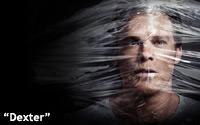
In most cases, the
final season or seasons of long-running serialized shows tend to be titanic disappointments, generally because the show-runners and other creative people who launched them move on to other things long
before the shows end. But sometimes these people stick around, as the producers of “Lost,” “Battlestar Galactica” and “The Sopranos” admirably did, and the quality
of the final seasons of their series are the better for it, even if the specific story turns in their finales sometimes put off as many people as they please.
AMC's soon-to-conclude
“Breaking Bad” and its extraordinary creative team surely belong in that group. Sadly, Showtime's freshly departed "Dexter" and its crew do not.
If you haven't seen last Sunday's
“Dexter” finale, or if you have yet to binge-watch the show's eighth and final season, you might want to stop reading this column. Frankly, I would suggest you stop watching the show
altogether, rather than waste any of your time on its wholly unsatisfying final run. Regardless, there are spoilers ahead -- and you have been warned.
advertisement
advertisement
Not to get too deeply into this, but when
an award-winning, high-profile and increasingly popular serialized program takes the kind of dive “Dexter” took in recent weeks, and especially in its last episode, the end result hurts
all of television.
The audience showed up for a final dose of “Dexter,” but Dexter the character did not. He was replaced by someone else entirely, more a victim of bad writing
than of narrative circumstance, and the last episode, which should have been grand, was instead gutted like one of his victims.
It's always a bad thing when a long list of questions and
concerns are not answered or addressed by the midpoint of a final episode, and you know that there is no way everything can be satisfactorily wrapped up in the small amount of time left, and that
sickening feeling that you as a long-term viewer are about to be screwed starts to sink in. It's not as though this inexplicable bottoming out of a multiple storyline series has not happened before,
but it matters when it happens to a show as important as “Dexter,” which helped redefine the original content on its network and influenced all of popular culture, helping to make dark
anti-heroes all the rage.
The writers did so much wrong this season (and last) that it is almost awe-inspiring. Some examples: Dexter's tough-talking foster sister Deb decided that she was in
love with him and became so obsessed with him that she murdered her boss, Captain Maria LaGuerta, when it appeared that LaGuerta had pieced together all of the mysterious events that surrounded Dexter
through the years and concluded that he was a killer. LaGuerta's investigation and mounting suspicions actually had the makings of a fascinating final chapter for the show, but it wasn't to be.
Similarly, Deb's sudden lurch over to the dark side at the end of Season Seven was really never resolved in Season Eight. Indeed, halfway through the final season it was all but brushed aside. The
show came to a close without any of the Miami Metro detectives who worked for LaGuerta solving the mystery of her murder.
Meanwhile, two fascinating new characters were introduced in season
eight -- Dr. Evelyn Vogel (certain Emmy nominee Charlotte Rampling), who had a hand in shaping Dexter's chilling dark passenger when he was much younger, and a young man named Zach Hamilton who
emulated Dexter and wanted to be just like him. But they were both killed off by yet another serial killer -- Vogel's long-lost son Oliver Saxon -- just as their stories were getting good. And when
Dexter had the chance to kill Saxon he uncharacteristically wimped out, which led to catastrophic results for three innocent people, including his beloved sister.
In a further stretch of
credulity, even for Dexter, he chose at the end to send his little boy Harrison off to Argentina in the care of Hannah McKay, yet another free-range serial killer, and to then stage his own death. The
Dexter we know would never have ditched his kid. Also, there was little regard for his stepchildren Cody and Astor, who weren't around in Season Eight, but whom viewers realize have at the series end
lost their parents, their aunt and to the best of their knowledge, their beloved stepfather and their little brother.
There were many other questions large and small swirling around during
that last hour, like why did the writers waste so much time during the final episodes of their show on a subplot involving geeky lab tech Vince Masuka and a daughter he never knew he had, which went
absolutely nowhere? And why did Hannah, the most-wanted woman in Miami and a strikingly beautiful blonde, move around the city without at least changing her hair color?
But the biggest issue
of all was the collective letdown millions of viewers experienced at the end of this profoundly unsatisfying story; one that seemed to be written without respect for characters and viewers alike.
Showtime should have insisted on something better, if only to ensure that its audience will continue to support its original programming. Few things threaten television like a viewer
scorned.